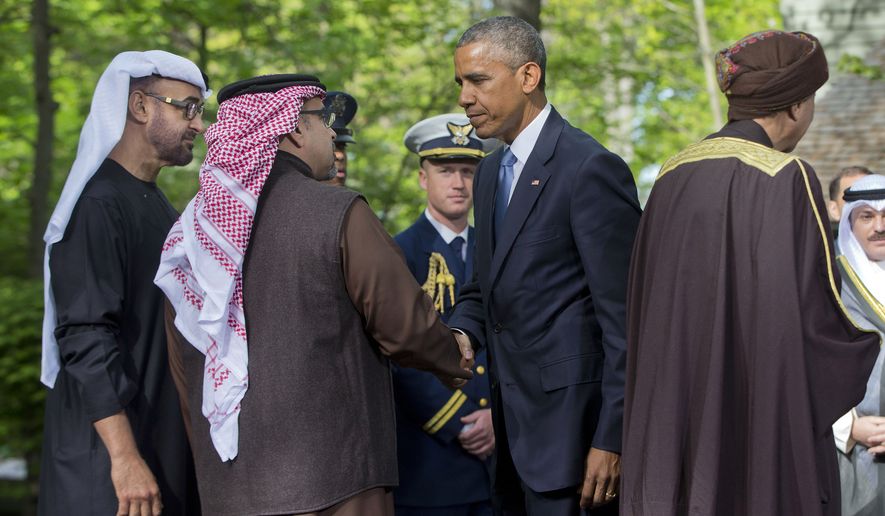An international agreement to rein in Iran’s nuclear program will most likely miss another key deadline, France’s ambassador to the U.S. said Tuesday in Washington.
“It’s very likely that we won’t have an agreement before the end of June, or even after June,” said Ambassador Gerard Araud at a public session with his fellow ambassadors from Britain and Germany at the Atlantic Council.
The ambassador’s comments come almost two months after a preliminary agreement was reached April 2 between Iran and a group of world powers known as P5+1, including the United States, France, Britain, Russia, China and Germany. The government of French President Francois Hollande has been perhaps the most skeptical of a deal among Washington’s European allies.
Following preliminary negotiations, the White House said it was “confident” that a final deal would be reached by the end of June, but hashing out the technicalities of the agreement has slowed the process. A major delay could mean added political headaches for President Obama, who already faces strong opposition from many on Capitol Hill to the Iranian deal.
But Mr. Araud’s fellow diplomats played down the dangers of a slight delay in reaching a final deal.
“I’m not particularly worried. I think this is fairly normal,” Peter Wittig, German ambassador to the U.S., said on stalled progress in the negotiations. “We have immensely complicated technical issues to clarify, and so it’s no wonder that we are not making a lot of fast progress right now.”
“It’s not a prediction on what will happen by the end of June. It’s just a feeling of the pulse right now,” he added.
As part of the agreement, the U.S. and its allies plan to curb Iran’s nuclear program by suspending sanctions, but many critics say the U.S. should not even engage Iran because a deal would help project Tehran’s influence in the region.
“In the Middle East, you do not engage your enemies. You try to weaken them, kill them if necessary, but do not engage,” said Efraim Inbar, the director of the Begin-Sadat Center for Strategic Studies at Bar-Ilan University in Israel.
But the European powers involved in negotiations still believe it is important to directly deal with Iran, which has been economically and politically isolated for decades.
“You don’t see very many Iranian Shiites strapping on suicide vests and blowing up airplanes. The young Iranians that I talk to want to get a green card, come to America and make a million dollars,” said Peter Westmacott, British ambassador to the U.S., suggesting that a lasting nuclear deal will benefit young Iranians most of all.
“None of us are doing this on a basis of blind trust,” Mr. Westmacott continued. “This is the best of the options that are out there.”
Mr. Wittig also stressed that the accord allows sanctions to be reinstated if Iran violated any aspect of the agreement. The U.S. has insisted on making this “snapback” provision automatic to any agreement, but Russia has rejected it, saying it should be voted on by the U.N. Security Council, of which Russia is a member.
But as of Tuesday, the U.S. and Russia have closed in on a deal to finesse their differences on the sanctions question, according to The Associated Press.
Still, rather than debate hypotheticals, the European negotiating powers say they want to instead focus on the next four weeks in order to finalize a good deal.
“Between now and the end of June there is still a great deal of details and work to be completed,” said Britain’s Mr. Westmacott. “It is not yet in the bag and we are all very clear that if we can’t get the right deal, then there won’t be a deal.”
• Brennan Weiss can be reached at bweiss@washingtontimes.com.




Please read our comment policy before commenting.